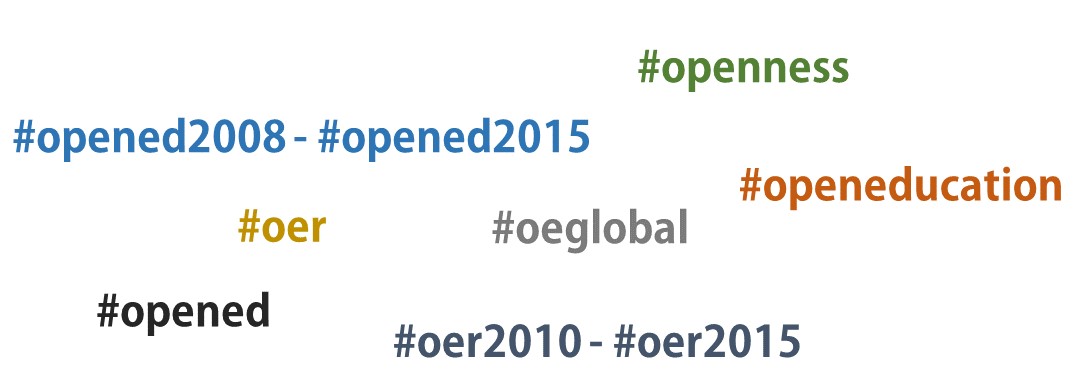This summer I am working with the Digital Learning and Social Media Research Group on a project to investigate discourses around openness in education happening on Twitter. This is a chance for PhD students and very early career researchers to work with experienced scholars in the field of networked scholarship, social media in education, digital/online learning, open learning, emerging technologies, learning analytics, social network analysis, and educational data mining.
I am excited to be working closely with George Veletsianos and Royce Kimmons on this project as they bring significant experience working and researching in this realm.
Our project will investigate the discourses around openness in education happening on Twitter. Specifically we hope to investigate:
- How has participation in the Twitter discourse around open education changed over time?
- Do we see more people and a greater diversity of people participating?
- How has the Twitter discourse on openness and open education changed over time?
By harvesting tweets with hashtags related to open education we hope to capture and analyse these emergent open discourses. We are currently looking for further suggestions of hashtags or even specific user accounts which represent the discourses on openness in education. Please feel free to add your suggestions to this list in our shared google doc.


Pingback:Can you help us make sense of the discourse around openness and open education? | George Veletsianos
Would be interesting in hearing more about the process. Eliciting hashtags is an ingenious step, especially if the Open Education is somewhat cohesive. Identifying actors is likely to have very interesting effects, especially in terms of SNA (Social Network Analysis). My own hunch is that the people who tweet about Open Education constitute a relatively dense network with lots of bidirectional connections and, quite possibly, a fairly strong clustering coefficient. But based on comments by people across the pond, there might be something of a split in the discourse itself, with UK participants tackling a wide range of issues and US participants (as well as, to some extent, Canadian ones) focused on the “cost of textbook” issue (with a strong emphasis on Open Educational Resources).
Something which may not be obvious is that there’s quite of work done on Open Education in other language communities. Some of us do use the same hashtags, on occasion. But there’s a whole other world, out there, which may be quite a bit more diverse than the one limited by English-speaking users of Twitter hashtags. There are activities around the Open Knowledge Foundation aimed directly at this type of language diversity.
Hi Alex, thanks for your comment. I am also really looking forward to applying some SNA techniques to the data to see how communities and shared discourses can be presented. We will be sharing as much of the process as possible as we move forward.
You raise an important point around non-English discourse. We may have to limit the scope of the study to English, which is unfortunate, as you say there are some excellent conversations going on around the world which might not be included. I am going to bring this point forward to the research team.
Pingback:Diversity, Justice, and Democratization in Open Education and #opened17 | George Veletsianos